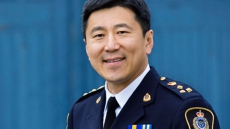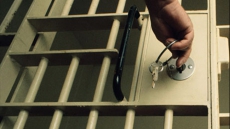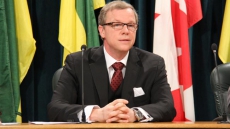A new report says global warming has so altered the Arctic that the Canadian Rangers — largely aboriginal reservists who patrol the North — need new equipment to navigate a vast terrain they barely recognize anymore.
The frozen land of their forefathers now has much thinner sea ice, weather that is no longer predictable, unfamiliar southern birds and mammals that have migrated north and traditional game that is disappearing and tastes funny.
And their patrols for the military have become more dangerous, especially as they travel where once-solid ice is now unreliable for sea crossings.
The 54 Canadian Rangers interviewed for a June military report say they need satellite phones, GPS navigation tools and better search-and-rescue equipment, along with the basic kit they've been demanding for years, including rifles and sleeping bags.
The document, obtained by The Canadian Press under the Access to Information Act, comes as Prime Minister Stephen Harper concludes his annual northern tour in Iqaluit by participating in the sovereignty exercise Operation Nanook 14.
The report drew on focus groups gathered in four communities, and recommends the government look for ways to provide the 5,000 Canadian Rangers such basic equipment as cold-weather coats.
"The elders used to be able to predict the weather by looking at the clouds; they can't do that anymore. You can't predict the weather anymore," was a typical comment on the impact of climate change, which has reduced snow cover, led to earlier springs and generated fiercer winter winds.
Snowmobiles are becoming less available as the snow disappears, making it harder to travel.
"We never used to have forest fires. Now we have more and more each summer," said one participant.
"There are new species now like small birds, ducks, salmon, foxes, grizzlies and an unknown species that is a cross between a polar bear and a grizzly," said another. "We never used to see any of these species before."
Meanwhile, staples of the indigenous northern diet — caribou, seal and polar bear — are migrating north to escape the warmer weather, leaving fewer animals to hunt.
"Polar bears used to be fat and tasty," said one ranger. "They taste different now."
And the Arctic is no longer a natural refrigerator for the hunt, said some.
"When we are on the land and living in tents, we dig holes to put the carcasses in to keep them frozen. Now even six feet down it is not frozen."
The groups said the diminishing availability of game has forced more families to buy expensive, less-healthy food in grocery stores, and that the health of communities has been damaged, with more asthma, scabies and viruses.
The report said most participants want the federal government to establish a new Canadian Forces base in the Arctic. But the loudest complaints were about the bad — and non-existent — equipment issued by the military.
"We're still using the same equipment as the first Rangers (in 1947): canvas tents, wood stoves," said one ranger, who noted they have to use their own sleeping bags and warm clothing.
One person called for new technology that could help gauge the thickness of the unreliable sea ice.
And there was a renewed call for more modern rifles, a long-standing complaint as the Canadian Rangers run out of stock and parts for their .303-calibre Lee-Enfield No. 4 rifles, which were purchased at the unit's founding in 1947 and are based on a 19th-century design.
The rifles, which handle the cold well, are for personal protection from predators rather than military engagements.
A spokesman for the military, Marc-Antoine Rochon, said an order for replacements, .308-calibre bolt-action hunting rifles, will go out for tender this fall with the first guns to be issued next year through to 2021.
But he did not respond to questions about the other kit being demanded by the rangers as they cope with Arctic warming.
The Canadian Rangers, often called the "eyes and ears" of the Canadian Forces in remote areas, operate in some 200 remote communities, most of them above the 60th parallel. Their motto "Vigilans" means watchful.
They serve part-time, and many are from indigenous groups such as the Inuit and First Nations, as well as Metis.





